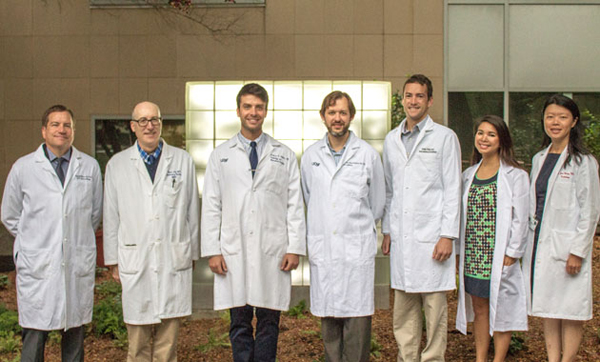The T32 Program at UCSF Radiology Jumpstarts the Careers of Junior Radiologists and Nuclear Medicine Physicians

Radiology research is a vehicle that drives scientific and technological progress in the field. Also, academic radiologists play an important role in training the next generation of clinicians. As a result, the T32 program at the UC San Francisco Department of Radiology and Biomedical Imaging exists to both jumpstart the academic careers of junior radiologists and nuclear medicine physicians and provide the essential foundation for developing a research program as an independent investigator.
“There's a real focus on mentorship in the program. We look at both a scientific mentorship format, where trainees work directly with a mentor in our department to do research and to develop their own individual research project,” says Christopher Hess, MD, PhD, Alexander R. Margulis distinguished professor and chair at UCSF Radiology. “We also use a professional mentor, and a professional mentor is completely separated from the research of the individual trainee, and acts more as a sounding board to help these individuals develop professionally and academically in their career by plugging them into the network, by introducing them to new concepts, and to look out for them I would say in their own kind of professional development to make sure that they're not getting stuck."
Dr. Hess was one of the first graduates of the T32 program along with Antonio Westphalen, MD, professor in residence in the Abdominal Imaging Section at UCSF Radiology in 2005-06. Many current UCSF Radiology faculty members and clinical fellows came from the T32 program, including Z. Jane Wang, MD and David Wilson, MD, PhD, T32 program associate directors, while others are faculty members or clinical instructors at academic radiology departments across the country.
“I think that at UCSF and in the Department of Radiology and Biomedical Imaging, we are ideally equipped to host the T32 Program,” says Thomas M. Link, MD, PhD, director of the T32 program and chief of the Musculoskeletal Imaging section. “We have approximately 130 faculty, and of these 130 faculty, we have 30 PhDs. And most of these are really experienced and very established researchers who have built significant research in radiology, and these are ideally suited to train these young radiologists in research and also help them build up research programs.”
The T32 program is funded by a grant from the National Institute of Biomedical Imaging and Bioengineering (NIBIB) (T32 EB001631), which Dr. Link believes is an ideal partner for this imaging based program. Overall, the NIBIB is crucial in promoting the field of research in biomedical imaging and biomedical engineering. They have been helpful and generous in helping UCSF Radiology advance (and of course fund) this successful program.
Currently, the program offers four, one-year positions.
